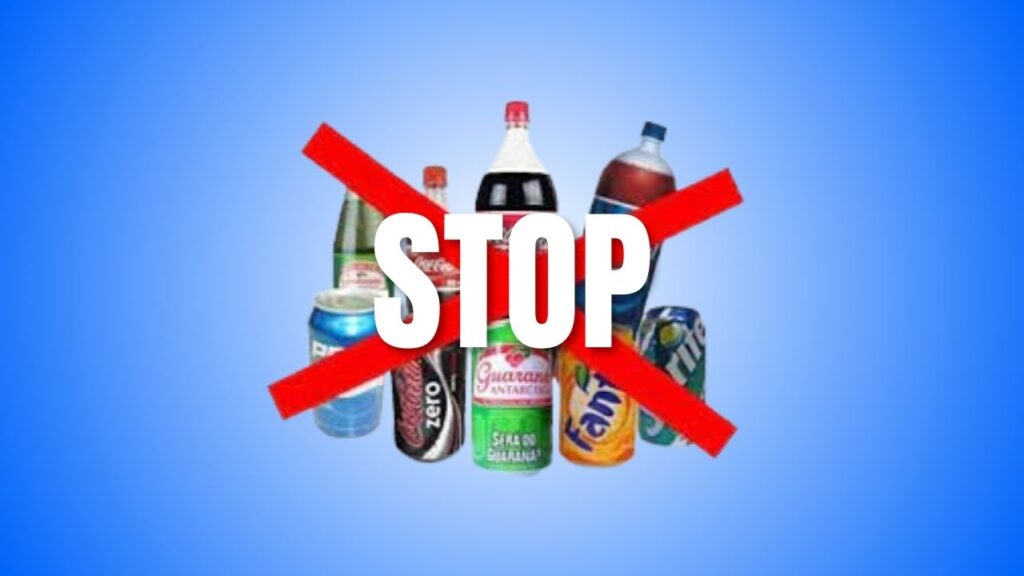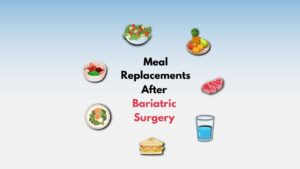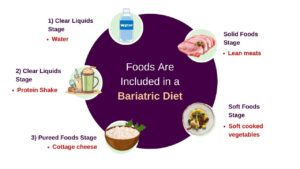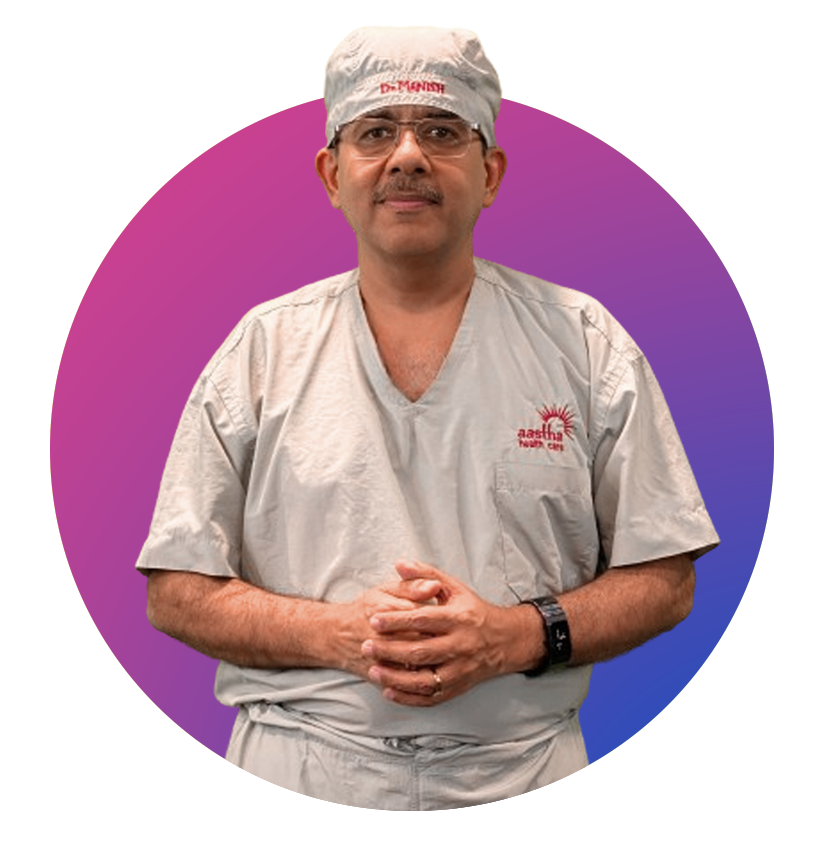
Why Carbs Are Still Important
Bariatric surgery modifies the digestive system in several ways, which affects how the food is digested and absorbed. This reduces your calorie intake, causes an increase in satiety, makes digestion better, reduces the risk of obesity related health problems and also helps in bringing back the blood glucose and blood pressure levels back to normal.
It is the most reliable surgery for extremely obese people. The insurance regulatory development authority of India issues guidelines stating the acceptance of obesity and bariatric surgery. It is considered as the safest scientific medical solution to treat obesity.
Bariatric surgery does not have any major risk if the right guidelines and prescriptions are given by the healthcare team. It also depends on how well the patients follow the same.
There might be some symptoms like nausea and dizziness, which can be easily managed by the team of doctors and nutritionists. Bariatric surgery has been a boon to people who are obese and are suffering in silence. It is better to kill the disease by going ahead with such safe and reliable procedures. Following the new lifestyle the right care will help one to improve the quality.
This procedure is done laparoscopically, wherein the surgeon makes one or more small incisions. Using a laparoscope (a small tube with a light source and camera), the surgeon can either see inside the body to make a diagnosis or use it to guide other surgical instruments.
Thus through laparoscopic surgery large open wounds and incisions can be avoided. This in turn significantly decreases blood loss, pain, discomfort and scarring. Even the side effects caused by anesthesia can be reduced or avoided. The instruments used in laparoscopy also cause less trauma to the tissue.
Hence this is the safest surgery & causes least or nearly no harm to your body plus altering the plain, hence the most shielded surgery yet. Thus instead of fearing the surgery which is gonna bring you the best version of yourself and pleasure and gonna provide lifetime security from chronic diseases and various other serious health problems, you must be fearing ‘obesity’ which is the actual villain of your story!
Before surgery, our doctors will discuss the pre-surgical and post-surgical instructions to be aware of, such as what to eat and drink during the recovery period. Eating or drinking the wrong thing could hinder your results and cause severe complications. For example, soda after bariatric surgery not only adds empty calories, but the carbonation could irritate your newly reduced stomach.

What are carbonated beverages?
A beverage infused with carbon dioxide (CO2) that results in a fizzy sensation and unique taste. These beverages are typically combined with sweeteners, flavorings, colors, and acids. Popular carbonated drinks worldwide include soda, carbonated water, and certain alcoholic beverages.
One of the most popular questions is ‘Do I really have to give up fizz for good?’ Will a fizzy drink, cola or soda really jeopardize things?
Although it can be tough for some to quit the fizz, there are some pretty good and compelling reasons why weight-loss surgery and soft fizzy drinks just don’t mix.
What Can Soda After Bariatric Surgery Do?
After surgery, the first thing to remember is that healthy foods and beverages with good nutritional value should be made a priority. Since your stomach is smaller, filling it with empty calories prevents you from gaining the energy you so desperately need.
Soda is high in sugar and filled with carbonation. It should be avoided completely for at least the first three months after surgery. Below are some of the complications that can occur if you were to consume it:
Increased Bloating: The carbonation in sodas can cause gas and bloating. As your stomach expands, you will experience abdominal cramping and distension. This will place added strain on your stomach and the incision while it is healing.
Dumping Syndrome: When foods or beverages high in sugar are consumed, it can cause the sugar to enter the small intestine at an unusually fast rate, resulting in extreme fatigue, nausea, fast heart rate, and diarrhea.
Delayed Weight Loss. Sodas are considered empty calories and provide no nutritional value. By consuming foods and beverages high in sugar, it will prevent you from effectively losing weight.
We all are fully aware that there is no nutritional benefit to sodas and even diet sodas. In fact, most of us know that sodas are actually harmful to our body. So why can’t we stop consuming these sugary drinks? Recent studies have linked soda consumption to osteoporosis, obesity, kidney disease, tooth decay, and heart attacks. In addition:
High Fructose Corn Syrup (HFCS) is the preferred fuel source for cancer. We all have cancer cells in our body; they just need the proper fuel source to grow. HFCS is also quickly converted to fat in the body, unlike regular sugar that takes about 8 reactions to convert to fat.
Phosphoric Acid is a major ingredient in most sodas. Your body does need phosphorus. However, if you are consuming an unbalanced amount compared to calcium, bone loss could occur. Phosphoric acid will also dissolve tooth enamel due to its low pH level. Besides leading to obesity and potentially weight loss surgery, this can lead to painful dental surgery.
Sugar is a main ingredient in all regular sodas, which quickly raises insulin levels. This leads to increased hunger, high blood pressure, diabetes, heart disease, weight gain, early aging, and much more harmful diseases.
Aspartame is an artificial sweetener found in all diet sodas. This particular sweetener is actually a chemical. When it is stored for long periods of time, it will convert to methanol and then lastly carcinogens, which directly causes cancer.
The motto is true that ‘everything is okay in moderation.’ It’s the overindulgence that hurts us. But, when bariatric surgery patients think of a soda, it’s better to go with water with lemon or iced tea sweetened with natural sweeteners, such as Stevia or Truvia. It’s refreshing without the addition of extra calories, damaging health effects, and empty calories that can be so detrimental to the weight loss surgery patient!
Alternative Beverages to Drink
While we know soda may be a part of your daily routine, one of our nutritionists will work with you to help you break this habit and provide delicious alternatives to help you stay on track. Try drinking one of these healthier options:
Water: As the healthiest beverage choice, water is necessary for achieving a successful recovery. It aids your body in healing and helps you stay hydrated. Because dehydration can happen quickly after bariatric surgery, carry bottled water with you everywhere you go and aim to drink 64 ounces a day. If you get tired of the taste of water, try adding lime, lemon, or fresh mint.
Milk: Since milk contains vitamin D and calcium, it provides good nutritional value. The type of bariatric surgery you have will depend on whether you need to drink fat-free milk, 2% milk, or whole milk.
Decaffeinated Tea or Coffee: Caffeine can cause dehydration, so you will need to limit your intake to no more than 16 ounces a day. This is enough to get your morning jolt. If you crave an afternoon beverage, try decaffeinated coffee or tea.

Vanshika
Bariatric Dietician & Content Writer








